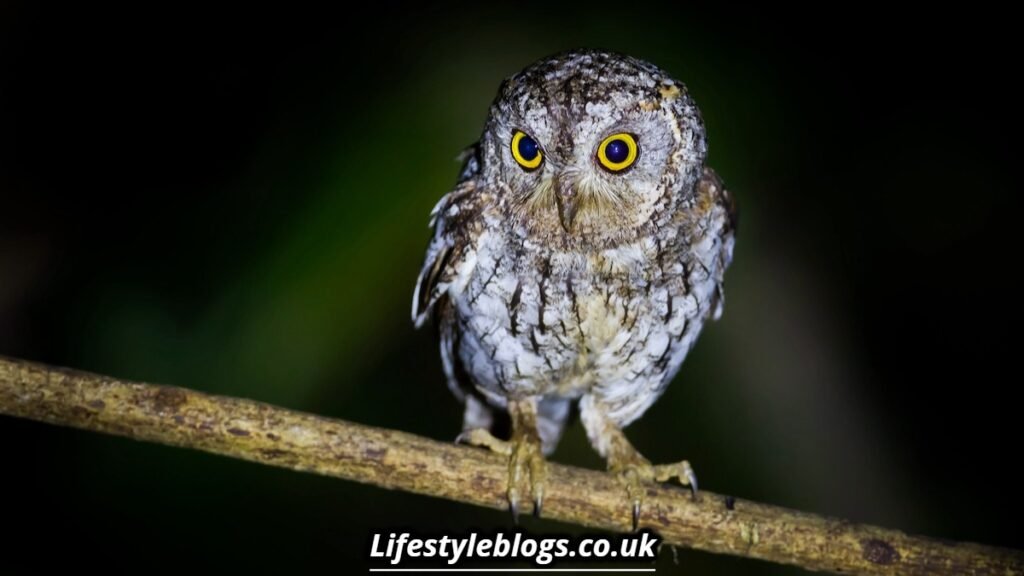Introduction: A Mysterious Night Encounter
Owls have always fascinated and unsettled people. With their silent flight, haunting calls, and glowing eyes, seeing an owl at night often feels like more than just a chance encounter. In many cultures, it raises a question:
Is it bad luck to see an owl at night?
The answer varies depending on spiritual traditions, religious teachings, and cultural superstitions. Let’s explore what this mysterious moment could really mean.
Spiritual Meaning of Seeing an Owl at Night
Spiritually, owls are powerful symbols. They represent:
- Wisdom and inner knowing
- Intuition and truth-seeking
- Messages from the spiritual realm
- Change, endings, or transformation
Seeing an owl at night is often viewed as a spiritual wake-up call. It may indicate that something hidden is about to be revealed — whether it’s a personal truth, a needed change, or a warning to trust your instincts.
Bad luck? Not necessarily. But spiritually, it could mean your energy is shifting — and you’re being urged to pay attention.
Islamic Perspective
In Islam, beliefs about owls are not rooted in Quranic teaching or authentic Hadiths. However, cultural folklore in some Muslim communities views owls as bad omens associated with death or misfortune.
But Islamic scholars emphasize that:
“There is no creature whose appearance or sound causes bad luck. These are superstitions from Jahiliyyah (ignorance).”
Therefore, seeing an owl at night is not bad luck in Islam. Muslims are encouraged to avoid believing in omens and instead place trust in Allah’s decree.
Hindu Beliefs
Hinduism offers a dual interpretation of owls:
- On one hand, owls are associated with Goddess Lakshmi, the deity of wealth and prosperity. In this context, owls are auspicious and bring blessings.
- On the other hand, in some regional beliefs, an owl calling at night is seen as a warning of danger or impending loss.
Context matters. In many parts of India, seeing an owl at night during Diwali is believed to be extremely lucky. In rural folk traditions, however, owls are linked with tantrik rituals or signs of misfortune.
So, in Hinduism: Owls can mean prosperity or bad luck, depending on time and context.
Christian Beliefs
In Christianity, the owl is often a symbol of solitude, reflection, and spiritual insight, but not bad luck. The Bible does mention owls a few times, often in poetic or metaphorical ways.
For example:
“I am like an owl of the desert.” – Psalms 102:6
During the medieval period, some Christian folklore associated owls with death or darkness — but modern Christian views focus more on wisdom and divine observation.
Therefore, seeing an owl at night is not seen as inherently unlucky in Christianity.
Buddhist View
Buddhism does not directly associate owls with bad luck. Instead, animals are interpreted based on the emotions or karma they trigger within us.
Owls are generally neutral but can be seen as symbolic of:
- Detachment from illusion
- Awareness of deeper truths
- Facing darkness without fear
In Buddhist cultures, an owl at night might encourage inner stillness or alertness — but not necessarily fear or superstition.
Cultural Superstitions Around the World
- Native American traditions: Some tribes believe owls are messengers or guardians of the spirit world, warning of danger or signaling a death. Others view owls as protectors of sacred knowledge.
- African cultures: In some regions, owls are seen as witches’ messengers or symbols of black magic, making them feared nighttime visitors.
- Japanese folklore: Owls (fukurou) can mean luck and protection. In fact, owl charms are sold to ward off misfortune.
- European myths: The owl’s call was often thought to predict death or illness, particularly in medieval and Victorian times.
In many of these traditions, the meaning of seeing an owl depends on context — time, location, and personal belief.
Scientific View
From a scientific perspective, owls are nocturnal predators with acute hearing and night vision. Seeing one simply means:
- You’re near their hunting grounds
- The area is ecologically healthy
- You’re in the right place at the right time
There’s no scientific basis for calling it bad luck — but emotionally, owls can trigger awe or fear based on their eerie nature.
Personal Reflection
A friend once shared how she saw a white owl perched on a tree outside her window just days before receiving unexpected news — not bad news, but life-changing.
That moment made her believe the owl was a spiritual messenger, not a sign of bad luck.
Conclusion: What Does Seeing an Owl at Night Really Mean?
Let’s summarize:
- Islam: No bad luck; belief in omens is discouraged.
- Hinduism: Could mean good fortune or misfortune, depending on the context.
- Christianity: Symbolic of wisdom, not bad luck.
- Buddhism: Neutral — encourages mindfulness and truth.
- Cultural beliefs: Mixed; some see owls as omens, others as protectors.
- Spiritually: Could signify hidden knowledge, transformation, or warnings.
- Scientifically: It’s just nature — no superstition involved.
Verdict: Seeing an owl at night is not inherently bad luck. It’s a powerful symbol that can awaken deeper intuition, spiritual reflection, or even appreciation for nature’s mystery.
